
科学研究
打造高水平科技创新平台和一流科研团队!

打造高水平科技创新平台和一流科研团队!
会议题目:International Symposium on Digital Platforms for Decision Based Design of Complex Engineered Systems
会议时间:2016年6月21日(周二)9:00 am – 6:00 pm, 2016年6月22日(周三)8:00 am – 6:00 pm.
会议地点:国际教育交流中心二层多功能厅
主办单位:永利集团3044欢迎光临机械与车辆学院国际系统实现联合实验室
会议内容:1) 基于决策的复杂系统设计,2)材料、产品及其制造过程一体化设计,3)基于知识的复杂产品设计数字化平台技术
与会嘉宾:
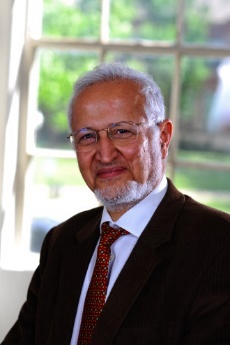
Professor Farrokh Mistree holds the L. A. Comp Chair in the School of Aerospace and Mechanical Engineering at the University of Oklahoma (OU) in Norman, Oklahoma. Before his arrival in August 2009 at OU, Farrokh has been a Professor of the Woodruff School of Mechanical Engineering at Georgia Tech for 17 years. Farrokh received his B. Tech (Hons) degree in Naval Architecture in 1967 from the Indian Institute of Technology, Kharagpur and his Ph.D. in Engineering from the University of California, Berkeley in 1974. He has co-authored two textbooks, one monograph and more than 400 technical papers dealing with the design of mechanical, thermal and structural systems; ships and aircraft. His design experience spans the areas of mechanical, aeronautical, structural, and industrial engineering. He has taught courses in engineering design, naval architecture, solid mechanics, operations research and computer science. He has supervised 28 doctoral students and more than 50 master's students, all of whom are well-placed around the world; 12 of his doctoral students are pursuing highly successful careers in academia. Farrokh is a Fellow of ASME, an Associate Fellow of AIAA, a Life Member of the Honor Society of Phi Kappa Phi and a Member of ASEE, RINA and SNAME. He was named the ASME Ruth and Joel Spira Outstanding Engineering Design Educator in 2011. In September 2012 he was recognized as a Distinguished Alumnus of the Indian Institute of Technology, Kharagpur, India. In December 2012, he received the Life Time Achievement Award from the International Society for Agile Manufacturing, Lafayette, Louisiana. Farrokh’s current research focus is model-based realization of complex systems by managing uncertainty and complexity. The key question he is investigating is what are the principles underlying rapid and robust concept exploration when the analysis models are incomplete and possibly inaccurate? His quest for answers to the key question are anchored in three projects, namely,
1) Integrated Realization of Robust, Resilient and Flexible Networks
2) Integrated Realization of Engineered Materials and Products
3) Managing Organized and Disorganized Complexity: Exploration of the Solution Space
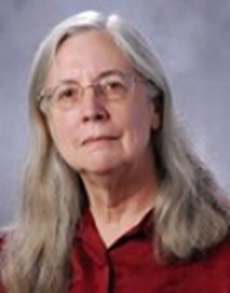
Professor Janet K. Allen holds the John and Mary Moore Chair of Engineering and is a Professor of Industrial and Systems Engineering at the University of Oklahoma (OU). Before coming to OU, she retired from the Woodruff School of Mechanical Engineering at Georgia Tech where she is Professor Emerita. The focus of Dr. Allen’s research is engineering design and especially the management of uncertainty. She and her students study/have studied energy systems, mechanical systems, materials, and design collaboration and education. Our group was among the first to suggest the use of modeling uncertainty in design, particularly in the early stages of design. We recognized the importance of statistical simulation and computer-based experimentation in design. We also were among the first to demonstrate the importance of using the design of experiments in exploring regions of design space in order to create surrogate models. This is a necessary step in moving away from the costly and time-consuming method of testing designs by building prototypes and replacing physical prototypes with computer-based experiments. Using surrogate models lead to the investigation of various aspects of robust design of many different systems, especially multilevel and multiscale problems. Janet Allen and her students have published over 200 papers in journals, conference proceedings and edited books. She is a Fellow of ASME, an Honorary Member of Pi Tau Sigma, and is Associate Editor of The Journal of Mechanical Design (Transactions of ASME). Roughly one half of her doctoral students are in academia; the other half are in industry; as consultants, as entrepreneurs or in large companies. Her MS thesis students have done well for themselves in industry. Most are successful in large companies or the DOD. A few, after learning the ropes in industry for a few years, have started their own businesses.

Dr. Jitesh H. Panchal is an Associate Professor in the School of Mechanical Engineering at Purdue University. He received his BTech (2000) from Indian Institute of Technology (IIT) Guwahati, and MS (2003) and PhD (2005) in Mechanical Engineering from Georgia Institute of Technology. Dr. Panchal's research interests are in the science of systems engineering with focus on three areas: (i) democratization of design and manufacturing, (ii) decision making in decentralized socio-technical systems, and (iii) integrated products and materials design. He is a co-author of the book titled Integrated Design of Multiscale, Multifunctional Materials and Products. He is a recipient of CAREER award from the National Science Foundation (NSF), Young Engineer Award and two best paper awards from ASME CIE division, and a university silver medal from IIT Guwahati. He is an Associate Editor, ASME Journal of Computing and Information Science in Engineering. He is/was a Principal Investigator of 6 NSF funded research projects:
1) Decision-Centric Foundations for Modeling and Analysis of Complex Networked Systems
2) Crowdsourcing for Engineering Systems Design: Theoretical and Experimental Studies
3) CPS Synergy: Foundations of Cyber-Physical Infrastructure for Creative Design and Making of Cyber-physical Products
4) Integrated Policy and Engineering Design for Complex Systems with Applications to Distribution Systems within Smart Electric Grid
5) CAREER: Collective Innovation - Transforming the Realization of Complex Engineering Systems
6) EAGER: Managing Uncertainty by Integrating Information Economics and Robust Design
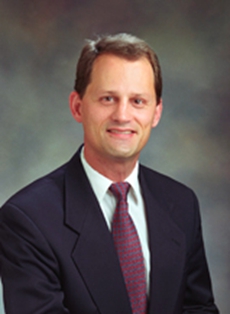
Dr.Mark F. Horstemeyer is a Professor of Mechanical Engineering Department at Mississippi State University (MSU) and holding a Chair position in Solid Mechanics in the Center for Advanced Vehicular Systems (CAVS) at MSU. Professor Horstemeyer's passion is to perform scientific research with an engineering application in mind in the area of mechanics of materials. His microstructure-property modeling efforts can be used to optimally design not only automotive components and systems but weapons, computers, aircraft, and other applications as well. Furthermore, now that the mathematics relating microstructure to properties have been coupled, solving the inverse problem to achieve new materials designs is tractable. This potentially has a large impact in the design community. His experience at Sandia National Laboratories in working at various size scales provides a perspective in the research and design community that is different, beneficial, and challenging. In summary, at the structural scale, he has been involved in designing weapons/automotive components; at the macroscale scale he has developed internal state variable formulations related to plasticity and damage while coupling theoretical modeling to experiments; at the mesoscale he has worked on crystal plasticity formulations and worked microstructure-property relations from experiments and modeling paradigms; and at the atomic level he has analyzed size scale effects with atomistic modeling. At Sandia National Laboratories (Livermore, CA), he worked on a myriad of projects mostly focusing on weapons programs but has recently transferred the research and technologies developed at Sandia to the automotive industry. Currently at MSU, he has collaborations with researchers at Sandia National Laboratories, Lawrence Livermore National Laboratory, Los Alamos National Laboratory, Naval Research Laboratory, Naval Surface Warfare Center, USCAR, GM, Ford, Alcoa, and Nissan. He has published over 250 journal articles, conference papers, and technical reports and is continually invited to give lectures for universities, government laboratories, and U.S. industry. He has received several technical awards at Sandia and a R&D100 award for his work on microstructure-property modeling.
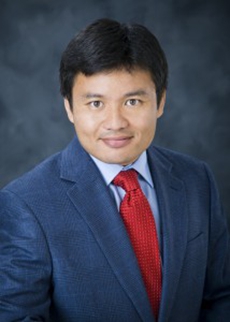
Dr. Yucheng Liu is an Associate Professor of Mechanical Engineering Department at Mississippi State University (MSU). He received his B.S. in Mechanical Engineering from Hefei University of Technology (China) in 1997, and received his M.S. and Ph.D both in Mechanical Engineering from University of Louisville in 2003 and 2005 respectively. Before joining MSU in 2014, he has been an Assistant Professor at University of Louisiana at Lafayette for 5 years. Dr. Liu’s research areas include: Computer modeling and simulation, CAD/CAE/FEA/CFD, crashworthiness analysis, structural mechanics and dynamics, engineering design, ocean and marine energy technology, vehicle system design and analysis, development of interactive design software, and applied mathematics. Dr. Liu is a recipient of the Louisiana Space Consortium Research Enhancement Award in 2014, Certificate of Achievement in Research & Sponsored Activities from UL Lafayette in 2013, Junior Faculty Researcher of the Year (College of Engineering, UL Lafayette). His representative publications (Book and Book Chapters) include:
1) Liu, Yucheng, Structural Analysis and Modelling: Research and Development, Nova Science Publishers, Inc., Hauppauge, NY, USA, 2013.
2) Liu, Y.-M., Woo, H.-J. and Liu, Yucheng, “Molecular Basis for Mechanical Functions of Molecular Motor Myosin”, Chapter 5 in Structural Analysis and Modelling: Research and Development, Nova Science Publishers, Inc., Hauppauge, NY, USA, 2013.
3) Liu, Yucheng and Wang, Q.-K., “Computational Modeling and Strength Analysis of Stiffened Plates with Arbitrarily Oriented Stiffeners”, Chapter 9 in Structural Analysis and Modelling: Research and Development, Nova Science Publishers, Inc., Hauppauge, NY, USA, 2013.
4) Liu, Yucheng, Alidoust, S. and Qi, B., “Prototyping and Experimental Evaluation of an Air Filtration System”, Chapter 4 in Refrigeration Systems, Design Technologies and Developments, Edited by D. Alda and D. Ciarlo, Nova Science Publishers, Inc., Hauppauge, NY, USA, 2013.
5) Liu, W.-L. and Liu, Yucheng, An Introduction to Earthquake Prediction, LAP Lambert Academic Publishing, Saarbrucken, Germany, 2012.
6) Peymani, F. Y., Ghanbary, S. A., Liu, Yucheng and Hayatdavoudi, A. Z., “CFD Simulation of Phase Particle Entrapment”, Chapter 7 in Engineering Applications of Computational Fluid Dynamics, Edited by Maher A. R. Sadiq Al-Baghdadi, International Energy and Environment Foundation, 2011 pp. 285 – 318.
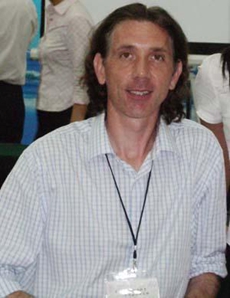
Dr. Andy Godfreyis a Professor of School of Materials Science and Engineering at Tsinghua University. He got his B.S. from Oxford University in 1990 and his Ph.D. from Oxford University in 1993. He has been a Research Scientist at Sandia National Laboratory, Livermore, California, USA from 1996 to 2000, and a Visiting Scientist of Dept. Materials Science and Eng. At Tsinghua University from 2000 to 2003. His research areas include: i) Development and application of EBSP analysis techniques, ii) Mechanisms of dislocation plasticity in metals, and iii) Ultra-fine grained metals produced by deformation processing. The selected publication of Dr. Godfrey includes:
1) Godfrey A, Juul Jensen D, Hansen N, “Slip pattern, microstructure and local crystallography in an aluminium single crystal of copper orientation {112}<111>”, Acta mater 46, 835-848 (1998).
2) Godfrey A, Hughes DA, “Scaling of the spacing of deformation induced dislocation boundaries”, Acta mater, 48(8), 1897-1905 (2000).
3) Godfrey A, Juul Jensen D, Hansen N, “Recrystallisation of channel die deformed single crystals of typical rolling texture orientations”, Acta mater, 49, 2429-2440 (2001).
4) Cao WQ, Godfrey A., and Liu Q, “Determining dislocation cell sizes for high strain deformation microstructures using the EBSP technique”, J. Microsc., 211, 219-229 (2003).
5) Li BL, Godfrey A, Meng QC, Liu Q, and Hansen N, “Microstructural evolution of IF steel during cold rolling”, Acta Mater., 52, 1069-1081, (2004).
6) Godfrey A, “Edge preservation near triple junctions during orientation averaging of EBSP data”, Scripta mater., 50, 1097-1106, (2004).
7) Godfrey A, Cao WQ, Hansen, N, and Liu Q, “Stored energy, microstructure and flow stress of deformed metals”, Metall. Mat. Trans. A., 36A, 2371-2378, (2005).